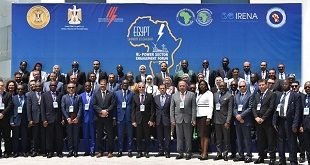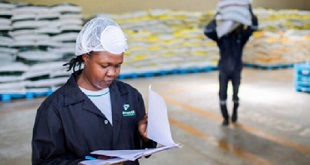Danger to economy
This time around, apart from part of the cash having already been spent, Muhumuza fears that the approval of this supplementary budget sets the stage for another supplementary budget request expected around May.
That will put the supplementary at over a trillion shillings.
Yet while the government is entitled to this arrangement, supplementary budgets should, under current regulations, not exceed 3% of the entire national budget.
The current national budget is Shs15 trillion. According to Muhumuza of this, usually, what is available for spending is about 80% of what is budgeted; in this case, Shs12 trillion.
In that situation, therefore, the current supplementary budget might be about 6% of the national budget. From Muhumuza’s perspective, this is budgetary indiscipline at its worst. And this indiscipline has far-reaching implications for Uganda’s economy. It means resources will be diverted from critical areas. The central bank might either issue treasury bonds to the private sector, sucking money from it and crippling private investment.
There is also an aspect of bad timing. In the words of Lugoloobi, the sources of financing for this supplementary budget are still hard to comprehend. But the demand comes when total public debt stood at $7 billion (Shs 21 trillion) at the end of 2013/14.
Finance Ministry officials insist there won’t be any borrowing. But deeply entrenched suspicions mean that some still fear that the borrowing continues to take place behind the scenes.
“I see us approaching stressful debt levels,” Muhumuza said, “where we have to borrow to repay old loans.”
The cost of borrowing, Muhumuza says, is also high given government has to pay an interest rate of 14 percent once it issues treasury bonds.
The bigger fear, however, is that this borrowing continues to pile up Uganda’s public debt, which to some is nearing worrying levels.
Already, the country’s debt is at 30 percent of the Growth Domestic Product (GDP). While government officials say that is sustainable, some disagree.
Critics argue that the country’s tax to GDP ratio (tax revenues as part of the GDP) and the current account are not good.
When Uganda rebased its economy recently, Uganda’s debt to GDP ratio fell from 39.8 per cent to around 29.2 per cent, while tax to GDP ratio declined from 13 per cent to 11.8 per cent. The country’s GDP rose from Shs 60 trillion Shs 68.4 trillion
“The debt to GDP ratio has fallen, but this gives us little room for additional borrowing. This is because the debt servicing costs are still stable while the tax-revenue ratio has fallen, and this implies fewer resources available for repaying future loans,” said Lawrence Kiiza, director of economic affairs at Uganda’s Ministry of Finance, in an interview with The EastAfrican newspaper early this year.
“Besides, absorption levels for committed debt are still lagging behind. Out of the $4.2 billion external portfolio, 48 per cent is yet to be disbursed because of low absorption levels among some government departments.”
As the debt piles up, President Museveni towards the end of March travel to China to close negotiations for a Shs 1.6 trillion loan for two power dam projects. “Our advice to the authorities is to implement infrastructure upgrades in the context of a strategic plan to properly assess and sequence projects,” IMF country director, Ana Lucia told The Independent. She said this would avoid undue effects on debt and domestic demand. There is a need to strategically decide what projects could be carried out by the private sector, she added, and for which of them public sector participation is needed.
Uganda’s infrastructural investment binge saw the IMF in January clear Uganda to increase its debt ceiling on non-concessional borrowing by up to 47 percent, to allow Uganda to fund ambitious projects. The country’s borrowing limit increased to $2.2 billion from $1.5 billion, a boost for the country’s efforts to access funds to meet its widening budget deficit.
The major problem is that year on year, government continues to gobble up more resources than the economy can generate.
The other danger with this supplementary budget is that government is looking to spend on items that require hard currency—something that is likely to increase pressure on the dollar exchange rate. The exchange rate stood at US$1:Shs2970 by press time.
Apart from inflating the dollar, economists fear that pumping this money into elections threatens to cause inflation.
Mutebile sparked debate in November last year when he said he would not repeat the mistakes of 2011.
“You might remember that the economy of this country was thrown into total chaos almost after the last elections allegedly because the central bank had printed a lot of money to finance the elections.
“I can assure you that the central bank did not directly print this money but where government expenditure is directed to areas that are not completely transparent, I cannot determine how much of the money that I have created ends up in political electioneering. It happens.
And I was there as Central Bank Governor, I did not participate whatsoever but because there was some spending of government dependent on treasury bills, which I was issuing, I was financing government indirectly. But since we understood that, we have never done again and I will not do it again.” Coming less than year ahead of 2016 elections, Mutebile’s remarks became a talking point with many speculating that President Museveni is likely to spend more money during the upcoming polls.
Museveni’s expenditure
Already, insiders put at Shs50-70 billion the amount of money President Museveni has pumped in his effort to neutralise perceived challenges from Amama Mbabazi, his former Prime Minister, NRM party secretary general. Museveni spent another Shs10 billion on the ruling party members traversing the country to market him as the “sole NRM candidate”. The NRM delegates conference which voted out Mbabazi cost between Shs 5-10 billion. Apart from these two, Museveni has held a string of events and embarked on a countless number of trips, where he has made donations worth billions. He spent another Shs40 billion to enable MPs clear debts. This was after he learnt that Mbabazi, through a Chinese money-lender, was looking to take advantage of their indebtedness. Many say, it is no surprise that State House needs a supplementary budget of Shs16 billion.
The Shs50 billion already spent is about 15% of the Shs350 billion that Museveni allegedly spent of his re-election campaign in the last election in 2011.
Yet campaigns have not even begun. As the party prepares to roll out its electoral road map, insiders expect to receive more billions to run campaigns for the legislators and the President. Should Mbabazi contest, more billions are expected to be pumped into neutralizing him.
While activists hope that donors can mount pressure against obscene election spending critics say that is hoping against hope. Checking election spending is one of the reforms that activists are pushing for ahead of the polls. Opposition stalwart Lukwago says Ugandans must realise that what Museveni spends is their money and fight him.
Dr. Julius Kizza, in his paper titled ‘Money Matters: Financing Illiberal Democracy in Uganda”, says political finance “is the mega-explanation of Museveni’s victory and Besigye’s loss”.
“Elections in Uganda have become procedural rituals, not opportunities for establishing government by consent, thanks to the obscenely high financialisation of the elections,” he writes.
Although vote buying is proscribed by law, the Commonwealth Observer Group of the 2011 election, in their report, say “the use of money in elections has become a culture in Uganda and voters have become accustomed to receiving bribes for their votes.”
They add that “the 2011 elections were Uganda’s most expensive ever”.
Some estimates show that at different times in elections, Museveni’s ruling party spent Shs13 billion in 1996, Shs30 billion in 2001, Shs50 billion in 2006 billion and Shs75 billion in 2011. This projection shows that Museveni’s expenditure on his re-election grows by an average of 60% above previous expenditure. That means that in 2016, Museveni is likely to spend Shs120 billion on his re-election. For Bossa and Lukwago, part of that money might be what parliament is set to clear.
All is not lost yet. With the new Public Finance Management Act, MP Lugoloobi hopes that there will be no room for supplementary budgets as these will be financed through the contingencies fund.
The budget process is also being reformed albeit slowly. Previously, the Finance Minister would read the budget and parliament would approve it four months after. Going forward, parliament will first approve the budget before it is read.
But already, the Finance officials are behind schedule. The Budget Framework Paper, which is a sort of explanation of the budget items should have been submitted to parliament by Dec.31 and approved by end of February but it is not yet before parliament, according to Lugoloobi. Never-the-less, Lugoloobi says that by May 31, the budget is supposed to have been approved and ready for reading in June.
 The Independent Uganda: You get the Truth we Pay the Price
The Independent Uganda: You get the Truth we Pay the Price


